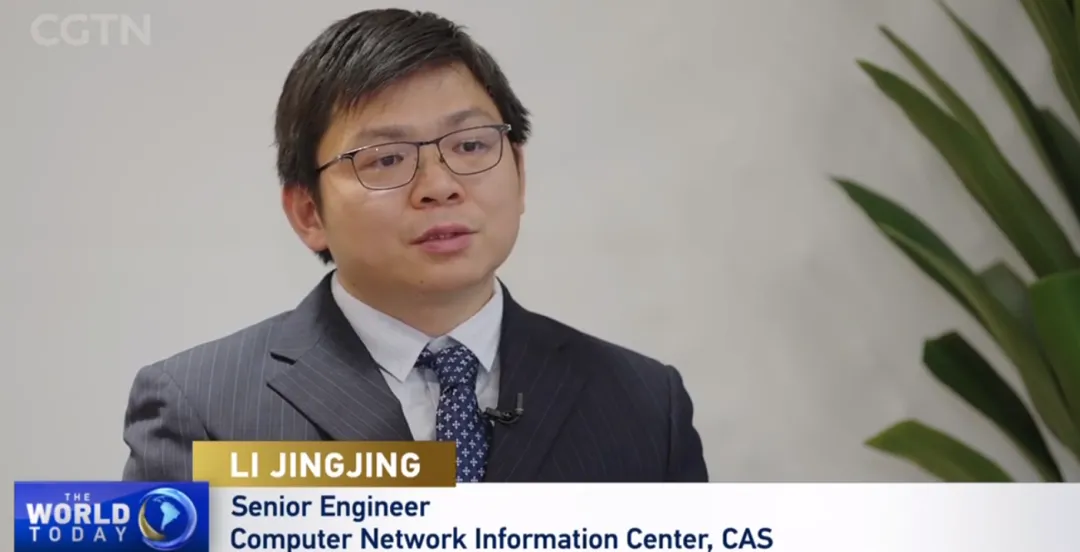Several Chinese regulatory bodies have announced plans to launch a joint campaign to create a healthier environment online and enhance governance over algorithm issues on major platforms. The campaign began on November 24th and runs until February 14th next year. LI Jingjing, Senior Engineer of Computer Network Information Center, CAS discussed with CGTN Reporter about algorithm governance.
From shopping decisions to life choices, and even political leanings, algorithms are shaping our lives in unprecedented ways. Globally, people spend an average of two-and-a-half hours on social media every single day. Consumers spend six hours a week shopping online. Machine recommendations result in as much as 80% of Netflix viewing decisions, while more than a third of purchase decisions on Amazon are influenced by algorithms. So, what mechanisms are hidden behind these numbers? I sat down with an expert on computer network information, to learn about how algorithms work, what risks they pose and where they will lead us to.
LIU JIAXIN, CGTN Reporter "Professor Li, talk to us about how these algorithms work and how they're able to serve such tailor-made content and can recommend with such precision."
LI JINGJING, Senior Engineer Computer Network Information Center, CAS "The essence of the algorithm is to obtain some information about users and produce results that are more favorable to the platform based on the platform's purpose. Some users may feel violated or frightened by these results, while some users may say 'this is exactly what I wanted'. Perhaps the people feeling violated has a much larger quantity than wanted.
It's as if machine learning and algorithms know us better than we do. At home and abroad, governments are well aware of this impact. On November 24th, the Cyberspace Administration of China and three other regulatory bodies jointly launched a campaign to purify the online environment of key algorithm issues on major network platforms.
The issues include homogeneous content push, unauthorized manipulation of rankings, the reckless pursuit of profit and the use of algorithms for differential pricing based on users' data."
LIU JIAXIN, CGTN Reporter "Some recent films have satirized the algorithm-dominated life. For example, one movie depicts a middle-class man who becomes a food deliveryman out of necessity after losing his job. In the process of delivering orders, he finds that he has no chance to even take a breath between each order, so he has to work overtime, and faces high fines for being late for each delivery. These rules are so harsh. In which direction do you think the algorithm of the platforms should be improved to make life easier?"
LI JINGJING, Senior Engineer Computer Network Information Center, CAS "The algorithm of that platform is obviously profit-seeking. In a fierce commercial marketplace, platforms may not consider the personal situation of the courier and will gradually exacerbate this matter. From the perspective of the whole scene, including couriers, users, and various other situations, they are all affected by the algorithm. But did the platform really get what it wanted? Not necessarily. In fact, when this competition occurs to an extreme degree, none of the roles get what they want."
LIU JIAXIN, CGTN Reporter "The power of individual couriers and consumers seems insignificant. So how can developers ensure fairness and equality?"
LI JINGJING Senior Engineer Computer Network Information Center, CAS "The key is transparency. Transparency can bring fairness; the platform should disclose its algorithm principles. It does not mean that we should not respect the intellectual property rights of enterprises and make some of their technical accumulation in algorithms public, but we should require them to disclose the strategies of some key judgment points and which direction the platform tends to go among the ABCD options. Directional principles should be subject to public review."

Available from: https://news.cgtn.com/news/2024-12-03/VHJhbnNjcmlwdDgyMTE2/index.html





